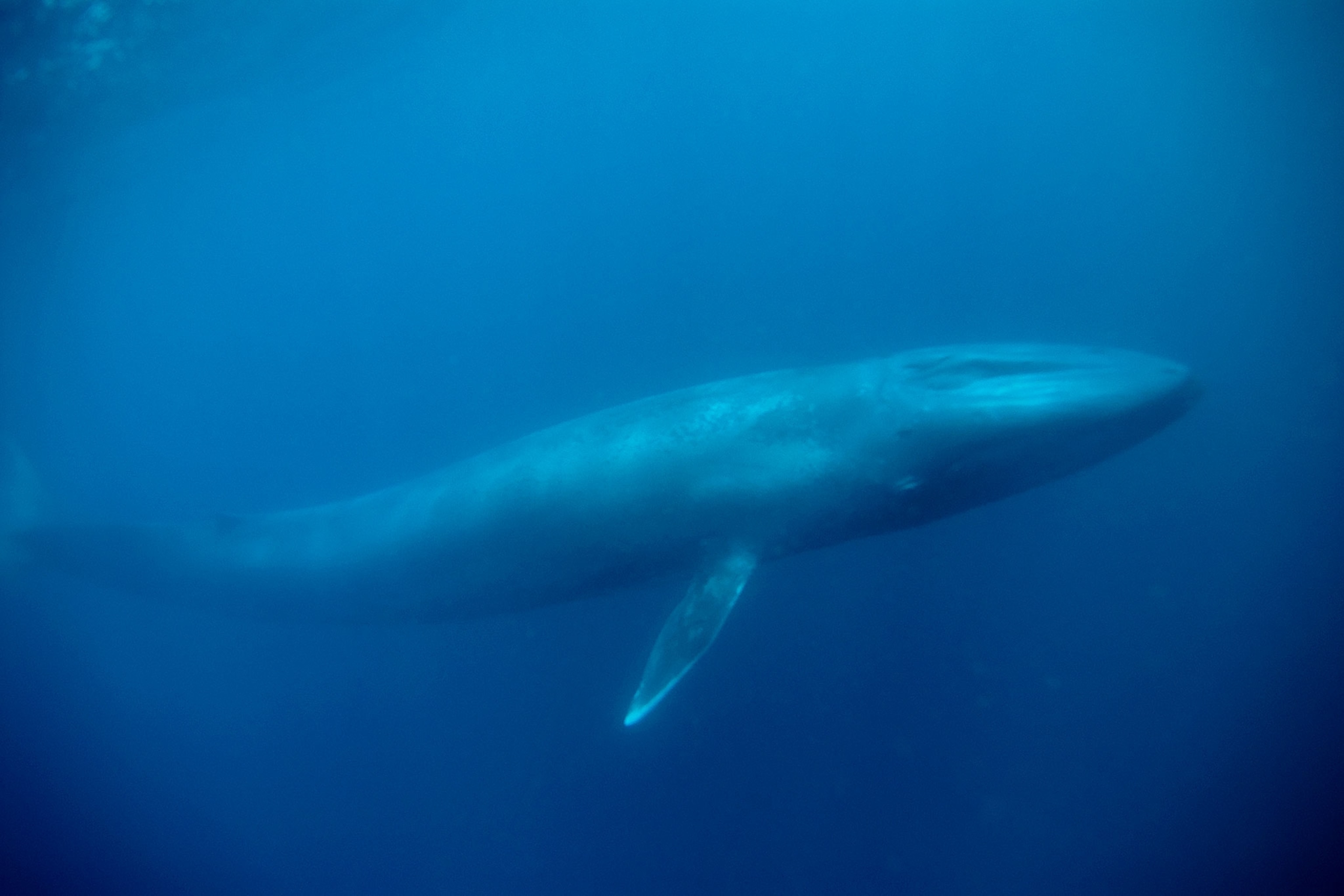
Elusive Blue Whale Behavior Revealed by Their Songs
By analyzing thousands of calls from more than 100 whales over 14 years, scientists are learning how these secretive beasts spend their time.
The biggest animal to ever live is also the loudest, and it likes to sing at sunset, babble into the night, talk quietly with those nearby, and shout to colleagues 60 miles away.
The blue whale, which can grow to 100 feet long and weigh more than a house, is a veritable chatterbox, especially males, vocalizing several different low-frequency sounds. And for years scientists had only the vaguest notion of when and why these giants of the sea make all those sounds.
But this week at an annual ocean sciences meeting in Portland, Oregon, one of the world's top whale-call experts revealed the surprising ways these secretive animals may signal behavior with their vocalizations.
In the first effort of its kind, Ana Širović, an oceanographer at Scripps Institution of Oceanography in La Jolla, California, and her team scoured a collection of more than 4,500 recordings of blue whale sounds taken from underwater microphones at over a dozen locations over 14 years, from 2002 to 2016, in southern California. The researchers then synced the recordings with the movements of 121 whales that had been tagged with suction-cup trackers. What they learned challenged many assumptions about these noisy beasts.
Hear Blue Whale Calls
Singing Males
Blue whales of both sexes produce several types of single-note calls, but only males sing. Males are also far noisier, and make different sounds for different reasons, but scientists aren't always sure what those reasons are. For example, scientists had long assumed that one type of short call was used at meal time. But, instead, males and females frequently produced these vocalizations during dives that didn't involve foraging at all.
"It's like the two behaviors are entirely separate," says Širović.
The calls also change with the seasons and with time of day. Some single-note calls seem to occur more often when whales are returning from deep dives. Those may help with pair-bonding, scientists say. Much like birds, which often break into sound as day fades, male blue whales also tend to sing at the end of the day. In some species, such as European robins and nightingales, singing is often adjusted as a means of conserving energy, and energy may be a factor with blue whales as well. But unlike birds, Širović says, "blue whale songs propagate over tens of kilometers or even 100 kilometers."
And when they're singing, male blues dive deeper.
"I think what they are doing by regulating depth is changing the distance over which they're calling, Širović says. "Individual calls are probably to animals nearby. They may be trying to reach much farther with singing. That's kind of cool."
She assumes the singing—especially since it's limited to just males—may somehow be linked to searching for mates. But no one has ever witnessed blue whale reproduction, so she can't say for certain.
Hear Fin Whale Songs
Songs of the Species
Širović has found there are similarities across many species, especially whales in the same family, such as blues, brydes, and sei whales. Males are the predominant singers and there seem to be peak calling seasons. But there are differences, too. Unlike blues, with their deep melodic songs, fin whales don't really change notes. Their songs, instead, are produced using a single note, but with a rhythmic beat.
And unlike some dolphin species, such as killer whale, it's not clear whether blues have distinctive voices. So far it appears they do not.
"We can't always tell whether there are 10 calls from 10 whales or one whale calling 10 times," Širović says. "So far, we can't really tell Joe Blue Whale from Betty Blue Whale."




